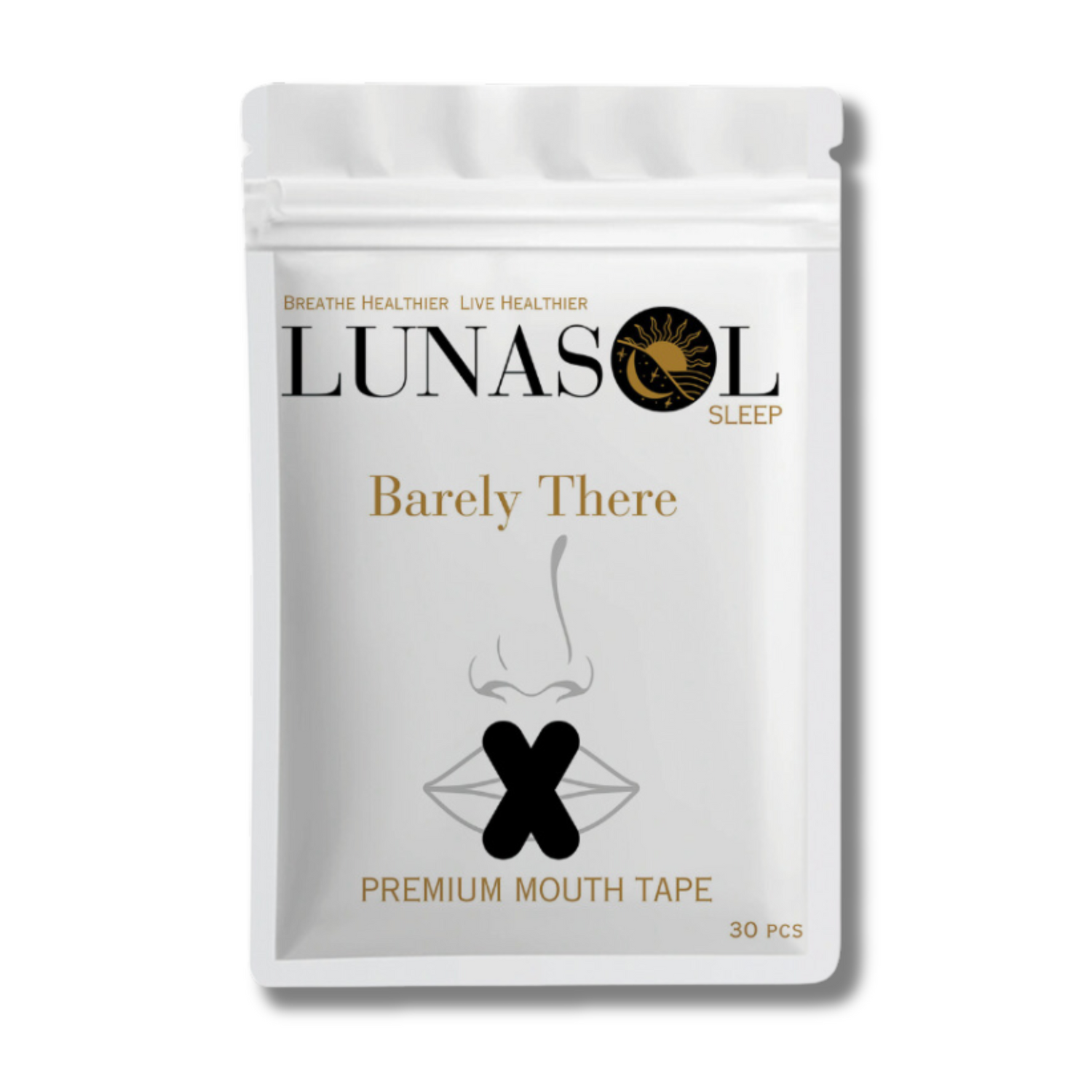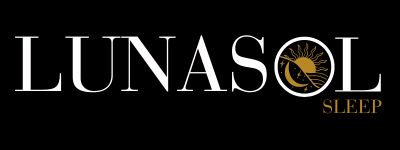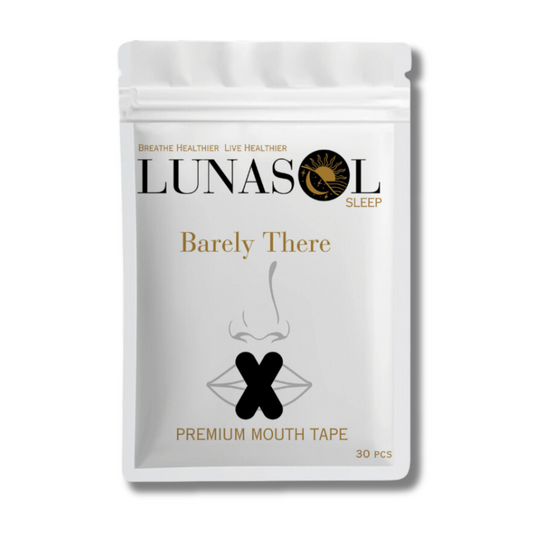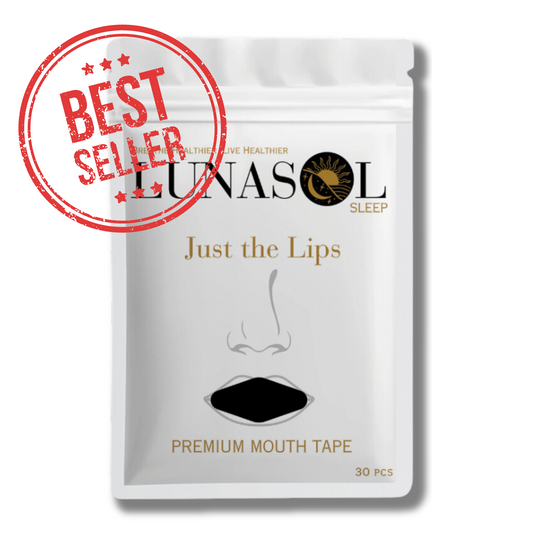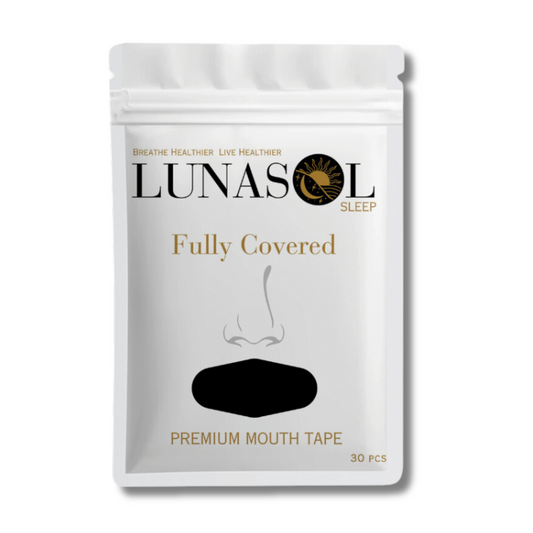Understanding the Importance of Sleep
Sleep is essential for overall health and well-being, and its importance cannot be overstated. It plays a crucial role in various aspects of our physical, mental, and emotional health. Here's an overview of sleep, how to improve it and nose breathing and its importance.
Let's first evaluate what takes place as we sleep. While sleep remains a complex and not entirely understood phenomenon, researchers have made significant progress in understanding its various aspects. Here are some key points to help you understand sleep better:
Sleep Stages: Sleep is typically divided into two main categories: rapid eye movement (REM) sleep and non-REM (NREM) sleep. NREM sleep consists of three stages: N1, N2, and N3 (also known as deep sleep). REM sleep is associated with vivid dreams and rapid eye movements. A complete sleep cycle typically includes all stages of NREM and REM sleep and lasts about 90-110 minutes.
Sleep Architecture: Sleep cycles repeat throughout the night, with NREM sleep dominating the early part of the night and REM sleep becoming more prominent in the later stages. The proportion of time spent in each stage of sleep changes as the night progresses.
Functions of Sleep: Restorative: Sleep helps the body repair and rejuvenate various physiological functions, including the immune system, muscle tissue, and memory consolidation.
Cognitive: Sleep plays a critical role in memory formation, problem-solving, and learning.
Emotional Regulation: Sleep is essential for emotional well-being and helps regulate mood.
The Autonomic Nervous System: Parasympathetic vs. Sympathetic
Circadian Rhythms: The sleep-wake cycle is influenced by circadian rhythms, which are internal biological clocks that follow a roughly 24-hour cycle. Light exposure, particularly natural daylight, helps synchronize these rhythms with the external environment.
Importance of Sleep:
In the fast-paced world we live in, it's easy to underestimate the power of a good night's sleep and the simple act of breathing. Yet, these two fundamental aspects of our daily lives play a pivotal role in our overall health and well-being. Sleep, the cornerstone of our well-being, is often taken for granted until it becomes elusive. We invest in comfortable mattresses, calming teas, and bedtime routines, all in pursuit of a peaceful slumber. What if I told you there's a simple and natural solution that can revolutionize your sleep? Enter the world of nose breathing during sleep, an often-overlooked practice that can lead to more restful nights and better overall health.
Understanding the Natural Powers of Sleep and Nose Breathing
Nose breathing isn't just for the yoga mat or meditation sessions; it's a game-changer for sleep too. During sleep, nose breathing, as opposed to mouth breathing, offers a range of benefits that can promote more restorative sleep. When we sleep, our bodies undergo a remarkable process of restoration and rejuvenation. Here's why quality sleep and nose breathing are a vital part of it:
Better Oxygenation: Nasal passages naturally humidify and filter the air you breathe in, creating an optimal environment for your lungs. This means better oxygenation of your body's cells, Oxygen is vital for energy production and overall vitality, which is essential for a restorative night's sleep.
Physical Restoration: During deep sleep stages, our bodies repair tissues, build muscle, and strengthen the immune system. Adequate sleep helps us recover from physical exertion and injuries. Chronic sleep deprivation is linked to a higher risk of serious health conditions, including heart disease, diabetes, and obesity. Sleep helps regulate hormones like insulin and cortisol, which are essential for overall health.
Stress Reduction: Sleep plays a pivotal role in regulating emotions. Lack of sleep can lead to mood swings, increased stress, and even contribute to mental health disorders like depression and anxiety. Deep, diaphragmatic breathing activates the body's relaxation response, reducing stress and anxiety levels. Breathing through your nose activates the parasympathetic nervous system, signaling to your body that it's time to rest and recover. It's a natural and effective way to calm the mind.
Mental Recharge: Sleep is like a mental reset button. It consolidates memories, enhances creativity, and promotes better cognitive functions. It's no coincidence that a good night's sleep can lead to improved problem-solving skills and decision-making abilities.
Deeper Sleep: Nose breathing encourages diaphragmatic breathing, where the diaphragm muscle fully engages. This helps lower the respiratory rate, promoting relaxation and deeper sleep. Breathing through your nose activates the parasympathetic nervous system, signaling to your body that it's time to rest and recover. Nose breathing may positively influence sleep architecture, including the distribution of sleep stages (such as deep sleep and REM sleep).
Reduced Snoring and Sleep apnea: Snoring is often the result of turbulent airflow through the throat or an obstruction or partial blockage in the airway, and mouth breathing can exacerbate this problem. Nose breathing helps to regulate airflow, by keeping the air way more open, reducing the chances of snoring. It's a win-win for you and your sleep partner. Nasal breathing is particularly beneficial for individuals with obstructive sleep apnea (OSA). OSA is characterized by repeated interruptions in breathing during sleep due to airway blockage. Breathing through the nose helps maintain a more stable airway and can reduce the severity of OSA symptoms.
